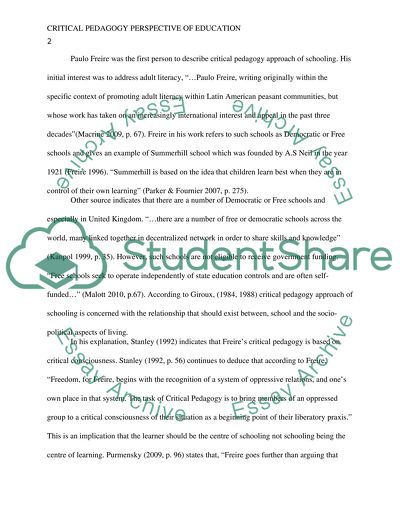Cite this document
(“Critical Pedagogy Perspective of Education Essay”, n.d.)
Retrieved from https://studentshare.org/philosophy/1496889-what-is-your-understanding-of-critical-pedagogy-to
Retrieved from https://studentshare.org/philosophy/1496889-what-is-your-understanding-of-critical-pedagogy-to
(Critical Pedagogy Perspective of Education Essay)
https://studentshare.org/philosophy/1496889-what-is-your-understanding-of-critical-pedagogy-to.
https://studentshare.org/philosophy/1496889-what-is-your-understanding-of-critical-pedagogy-to.
“Critical Pedagogy Perspective of Education Essay”, n.d. https://studentshare.org/philosophy/1496889-what-is-your-understanding-of-critical-pedagogy-to.


